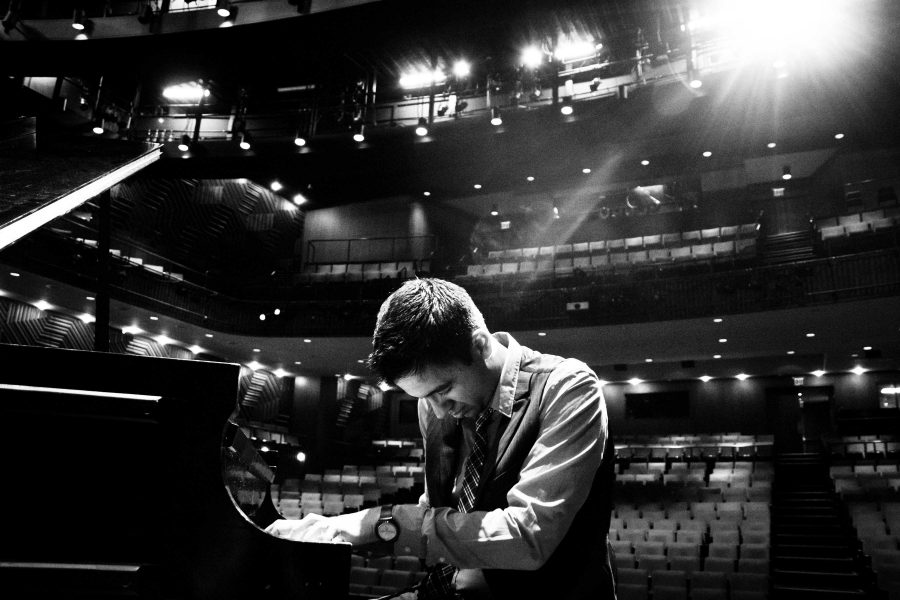By Claire Dietz
Vijay Iyer did not take on music as a full-time profession until his mid-20s.
Since then, in an effort to make up for lost time, he has released 20 albums.
At 7 p.m. Saturday, Iyer, a professor at Harvard and former MacArthur Fellow, will hit the Main Stage of the Iowa City Jazz Festival for the first time to perform with his trio.
At age 3, Iyer began playing the violin, and soon he had picked up the piano — by ear, no less. When eventually he quit the violin in order to pursue other disciplines, Iyer thought he would never become a full-time musician.
“I didn’t realize I would make music the main central path of my life until my 20s,” Iyer said. “I’ve been putting out albums, touring, performing, composing, and leading groups since the ’90s.”
“I wasn’t serious about a life of music until I was about 23; I kept doing it because I loved it, but I wasn’t pursuing it as a career,” Iyer said. “It gave me feelings, a certain range of feelings, the possibility of feeling. It took me a while to realize that this could be my life.”
For Iyer, the moment of realization came as a Ph.D. candidate at the University of California-Berekely, when he began working with lauded saxophonist and avant-garde jazz composer Steven Coleman.
“When he first invited me in 1995, suddenly it was like, I wasn’t just a hobbyist,” Iyer said. “I was thrown into the deep end with some of the greatest musicians of their generation.
“We were creating what felt like state-of-the art creative music, [and] I had to take it seriously. I wasn’t just doing it for fun; it could have an impact if I pursued it.”
Over the years, Iyer has come to learn that an acute ability to listen — both in the musical and the human sense — is the most important trait a musician can possess.
“I hope I’ve become more compassionate and understanding of others and humanity,” he said. “That’s what it amounts to over that period of time. That’s what music is about: It’s about listening to each other, and empathizing, and being compassionate.”
Now that the trio — which, though flexible, typically consists of Iyer, percussionist Marcus Gilmore, and bassist Stephan Crump — has been playing together for so long, their bond seems natural.
“You get to participate in millions of interactions with millions of people,” he said. “You make the most of those links that you forage. We trust each other, understand each other, and get to grow with each other. When performing, realities are revealed to you that won’t be shown anywhere else.”
Iyer said what makes all of the madness of touring and stress of playing a show worth it is the audience.
“You can tell when you forage a genuine connection with an audience; you can hear it,” Iyer said. “That sound, it’s not just a sound, but how it announces itself in a way you find people breathing with you, moving with you, hearing you, and hearing each other and experiencing this together. This is why I do it, what makes it all worthwhile, is creating these moments and bonds.”
Above all else, Iyer said he believes music can be a guide.
“Music is a healing force, and when you pursue it, you come to terms with the healing force it has, you can wield that power and use it for good. You want to answer that call.”



